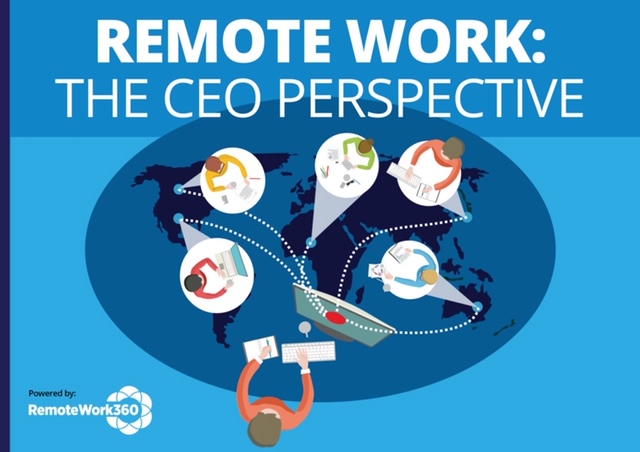Payroll: Paying Remote Workers - What You Need To Know
- Home
- Supplier Directory
- Attendance & Monitoring
- Collaboration & Communication
- Cloud Telephony & VOIP
- Collaboration & Secure File Sharing
- Communication Software
- Creative Tools
- Culture Building
- Interactive presentations/screen sharing
- Messaging Tools
- Online Training
- Productivity
- Project Management
- Shared workspaces
- Time Tracking
- Video Conferencing
- Virtual Water Cooler
- Web Developer tools
- Finance/Accounting
- HR/Talent Management
- IT
- Managing Remote Teams
- Productivity
- Project Management
- Remote Workplace Wellness
- Sales & Marketing
- eNewsletter
- Events / Education
- About Us
- News
Finance/Accounting, Payroll
ByHeidi Williams
How do you pay remote employees in different countries?
Paying employees who work remotely, in different countries requires a more complex payroll set-up than paying in-country, but it can be achieved in a number of different ways, depending on location: payment via a local partner, outsourcing payroll to a 3rd party “employer of record” or remote payroll. How do you decide which approach is best for your business?
Is your remote worker an employee or an independent contractor?
Firstly, you need to establish whether the remote worker is an employee of the company or an independent contractor. Independent contractors can be paid without the tax obligations that come with having employees on payroll, so a contractor can simply send you an invoice and this can be paid and they are responsible for submitting their tax returns etc.An employee in another country may require a company to either outsource or run a local payroll, unless a remote payroll is permitted under local laws. Determining which currency payment will be made in, is also a consideration:
Currency
- Will you pay your remote workers in their local currency or in yours?
- How will you handle currency fluctuations and exchange rates?
- What is the base currency used to determine and pay compensation?
Sometimes a remote worker will expect payment based on their own local currency, and depending on exchange rates and currency fluctuations it can be difficult to equalize the pay rate among team members.
Four options for managing payroll for remote workers in different countries
1. Use a local partner to manage your payroll for remote employees
You can work with a local partner who puts your employee on their payroll. You continue to direct and supervise the employee and their work, but the local partner takes care of payroll and benefits. This option is often chosen by companies that have existing partners or distributors in local countries in which they have employees.
2. Make payment to remote employees using your existing payroll
Some countries do not permit remote payrolls from foreign companies, whilst other permit it providing the employee is registered by that company. You will need to ascertain the regulations in the countries
3. Outsource payroll for remote workers to a payroll specialist
Using third parties to outsource payroll is a common solution for managing payment of remote workers. You have two options – use a local payroll vendor that manages and pays the remote worker’s compensation, or use a GEO service which offers full payroll and employer compliance within the remote worker’s local country. GEO’s operate differently to payroll providers in that they have a legal agreement in place that means they function as if they were the registered local employer for the remote worker.
4. Convert your remote workers into independent contractors
Employing remote workers as independent contractors can really help simplify the payment process as they are responsible for their own taxes and benefits. Businesses use a number of different tools for the actual transfer of funds – from electronic payment tools like Western Union to Paypal or Payoneer. Some of the time tracking, attendance and monitoring tools in our supplier directory have a billable hours function built-in to help manage the process of collating and confirming remote employee hours worked.
Tax compliance and processing can be a headache for remote workers, with their liabilities depending on their country of residence and where their pay check is being processed. Remote workers will need to seek advice on the appropriate tax deduction regulations in their country of residence – there are treaties that protect workers from dual taxation, through tax credits and rebates. Local taxes will need to be withheld by the payroll outsourcing partner whereas if the remote worker is paid from the home country of the employer, the employer may have to withhold taxes and the remote employee will have to file a tax claim as a non-resident and take care of payment of taxes based on their country of residence.
Digital nomadism has seen many remote employees move to work in countries or states which have very low or no income tax laws, such as Dubai – and these countries have more recently introduced worker-tourism visas to allow remote workers and their families to reside in their country and work remotely for companies in other countries. Employee benefits such as social security are usually aligned with the country where payroll is being operated. GEO companies offer real benefits in this respect as they operate as a local employer meaning that all tax and benefits are managed locally.
We’ll be providing more insight and guidance on payroll considerations for remote workers, in coming weeks – sign up to our newsletter to stay informed.
Related Posts
An estimated 86.3% of San Francisco employees are working from home, the highest rate among 10 major ...
May 11, 2021
In the third instalment of her blog - you can catch the first, on maintaining creativity here and ...
January 22, 2021
The different “kinds” of remote: finding the right fit your business Covid-19 has turned our world ...
January 14, 2021
RemoteWork360
RemoteWork360.com is powered by Chief Executive Group, which exists to improve the performance of business leaders, build communities and strengthen society.
Latest Insights
COPYRIGHT ©2020 REMOTEWORK360. ALL RIGHTS RESERVED.



